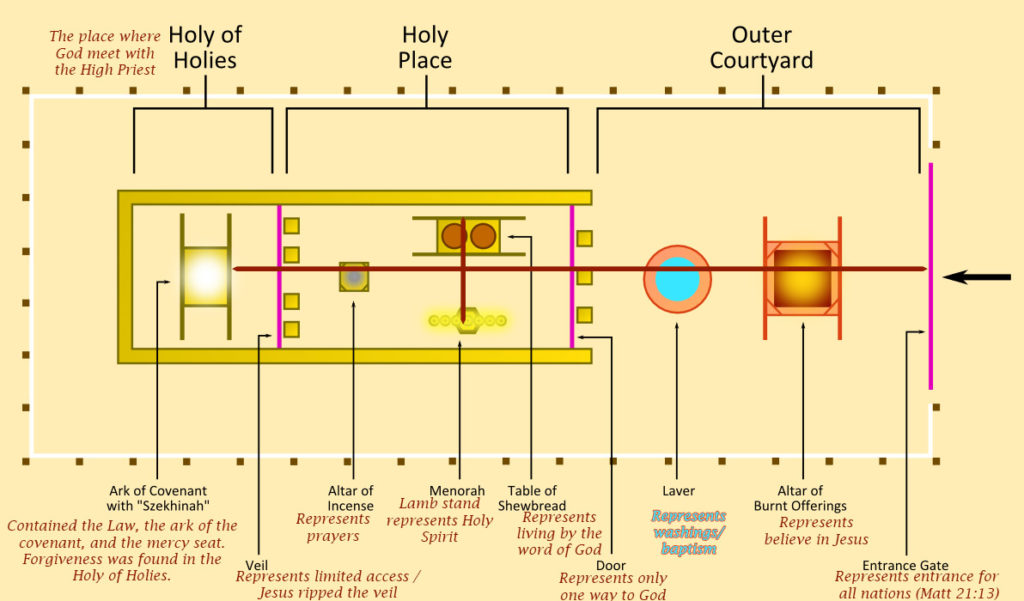
by Equip the Nations | Apr 29, 2016 | Equip The Nations' Blog, Equipping, Teaching
The Salvation Process: begins with faith and repentance, and ends in glorification. 1. Repentance means that we “have been saved” from the PLEASURE of sin. It is in the perfect tense. (See Ephesians 2:6-10.) 2. Justification means that we “were saved” from the PENALTY of sin. It is in the past tense. (See Romans 8:24.) 3. Sanctification means that we are “being saved” from the POWER of sin.. It is in the present tense. (See 1 Corinthians 1:18; 2 Corinthians 2:15.) 4. Glorification means that we “shall be saved” from the PRESENCE of sin. It is in the future tense. (See Romans 5:9-10; Romans 10:9; 1 Corinthians 3:15.) Paul sometimes portrayed the process of salvation in terms of past and present experience and future anticipation. For example, he commended the Thessalonians for the testimony of their faith, “how you turned to God from idols [past] to serve the living and true God [present], and to wait for his Son from heaven [future]” (1 Thess. 1:9–10). But usually he referred to only one aspect of salvation in any given verse. JUSTIFICATION – The first phase of the experience of salvation [after repentance] is often called justification. The word refers to the acquittal from the penalty of sin that God gives to those who have faith in Christ (Rom. 3:26). The noun (dikaiōsis) occurs only twice in the New Testament, both times in Paul’s letter to the Romans in relation to the work of Christ and its benefit for Christians (4:25; 5:18). In the use of the verb different temporal aspects of justification are seen. Paul told the Corinthians, for...

by Equip the Nations | Apr 29, 2016 | Equip The Nations' Blog, Equipping, Teaching
INFANT BAPTISM AND THE AGE OF ACCOUNTABILITY “The debate about infant baptism is fundamentally a debate about children, and not really a debate about baptism at all” (287, italics original). Such an approach is likely to perpetuate a glaring—and surely, intolerable—inadequacy of a great deal of Protestant theologizing on infant baptism, from Calvin’s Institutes 4:16 onwards, namely, its marginalizing a much of the NT’s explicit witness to baptism. The result is evident in Reformation orders of service for infant baptism from Edwardian England and Knox’s Scotland. (Wright, D. F. (2005). Review of The Case for Covenantial Infant Baptism Edited by Greg Strawbridge. Themelios, 30(3), 116.) Where to Begin? God states in His Word: “The Wages of Sin is Death” Romans 6:23a Is Romans 6:23 for everyone at every age? Does a person has to reach an age of accountability for God sin to be counted towards him or her? Is Romans 6:23 for everyone regardless of age? Because of Adam’s sin, all of mankind is born in a sinful world separated from God. Psalm 58:3 “The wicked are estranged from the womb; These who speak lies go astray from birth.” Ephesians 2:3 “…were by nature children of wrath…” Romans 5:18 “So then as through one transgression there resulted condemnation to all men…” Let’s ask some questions and look at what the Bible has to say. Then you decide. 1. Can parents do anything to help ensure their child’s salvation? “And when eight days had passed, before His circumcision, His name was then called Jesus, the name given by the angel before He was conceived in the womb. And when...

by Equip the Nations | Apr 28, 2016 | Equip The Nations' Blog, Equipping, Teaching
Baptism in Christ Jesus Jesus’ Teachings on Baptism. Jesus rarely spoke directly of baptism. However, in the Great Commission He calls the apostles to make disciples of all nations and baptize in the name of the Father, the Son, and the Holy Spirit (Matt 28:18–20). Early Christians came to see this Trinitarian formula as essential to a properly administered baptism. Elsewhere Jesus refers to His death on the cross in terms of baptism (Mark 10:38–39; Luke 12:50). Baptism in Acts. Early Christians baptized converts to the faith to signal their entrance and initiation into the Christian community (e.g., Acts 2:38–41; 8:4–13, 34–38; 9:17–19; 10:44–48; 16:11–15, 25–34). Baptism seems to have been associated with repentance, forgiveness of sins, and the bestowal of the Holy Spirit, but not in any sort of systematic way. For instance, in Acts, the Holy Spirit is sometimes given concurrently with baptism (Acts 2:38–41), sometimes before baptism (Acts 10:44–48), and sometimes after baptism (Acts 8:4–17). The connection between baptism and the Holy Spirit seems to trace back to John’s promise that though he baptized with water, Christ would baptize with the Holy Spirit (Matt 3:11; Mark 1:8; Luke 3:16; John 1:29–34; see also Acts 1:5; Schoonenberg, “Le Baptême d’Esprit-Saint,” 74–75; Lampe, Seal of the Spirit, 44–46; Kavanagh, Shape of Baptism, 17; Kavanagh believes that the early church’s experience of Pentecost shaped its interpretation of Jesus’s baptism). Baptism seems to have been closely associated with the preaching of the gospel: Peter directs those who believe his preaching to be baptized (Acts 2:38), and Philip’s gospel proclamation leads the Ethiopian eunuch to request baptism (Acts 8:34–36). Baptism in...




